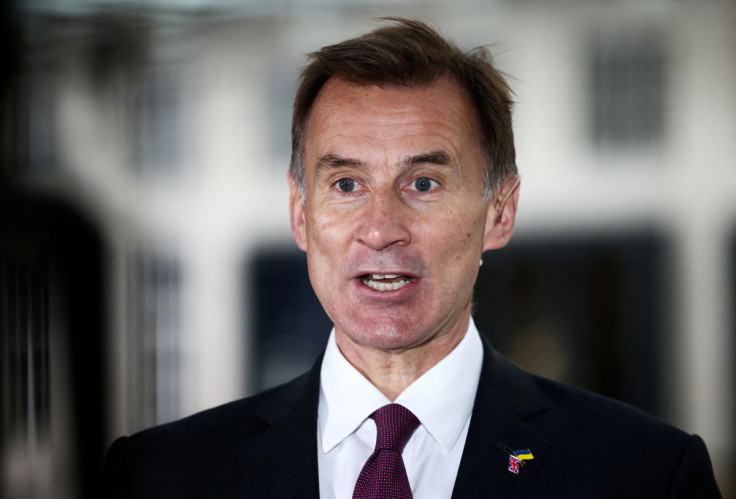Chancellor Jeremy Hunt Confirms National Living Wage Will Rise to £11 An Hour
"We're giving over two million workers a wage boost worth over £1,000," the Conservative Party announced today after revealing plans to punish the 'workshy' benefit claimants.

Chancellor Jeremy Hunt has confirmed the proposed rise in the national living wage to 11 pounds in his speech at the Conservative Party conference today in Manchester.
The increase in the national living wage will be in April 2024 in a move considered to be beneficial to the two million low-paid workers.
The national living wage is considered to be the lowest amount that workers aged 23 and above can be allowed to be paid per hour. The current minimum wage is £10.42 an hour, with lower rates for workers of a younger age.
The decision about rates is made by the government following the advice of the Low Pay Commission, an independent advisory group. The group has estimated the rate for next year for the government target to meet, to be between £10.90 and £11.43.
Moreover, Director of the Living Wage Foundation, Katherine Chapman has responded to the government's national living wage announcement today. She commented that although the news is "welcome" for low-paid workers, it "falls short of the real Living Wage from next year, the only rate that is independently calculated based on the cost of living". The announcement of the real Living Wage rates will be on 24 October.
Chapman further added how almost 14,000 employers have committed to pay beyond the minimum wage by always paying the real Living Wage. This is so that all their workers, be they cleaners, or security guards, are paid a wage that meets the cost of living.
This is significant as their research last week found that 60 per cent of people being paid under the real Living Wage had to turn to food banks in the past year, with almost 40 per cent also having to go without meals regularly.
The findings of the research further showed the financial hardships faced by those being paid a low wage. Low paid workers were also found to be struggling with paying their household bills. Also, 32 per cent of low paid workers were reported to be finding it difficult to heat their homes. Additionally, 27 per cent of workers earning a low wage were behind on paying their rent or mortgages.
Furthermore, low paid workers reported their income after essential expenses, with 27 per cent having no money left remaining each week. A further 42 per cent have less than 30 pounds remaining each week and 13 per cent have less than 10 pounds.
NEW: @Jeremy_Hunt just announced that we’re giving over two million workers a wage boost worth over £1,000.
— Conservatives (@Conservatives) October 2, 2023
Labour would hammer the lowest paid with reckless borrowing and unfunded spending.
The Conservative Party is the Party for working people. pic.twitter.com/5jQVh01pVo
Despite raising the national living wage, he earlier revealed plans to make the "workshy" benefit claimants face a harsher punishment. According to the chancellor, it is not fair that those on benefits who are not trying to get a job are receiving the same financial support as those who are trying.
Some of the possible ways in which people will face tougher measures are by reducing the amount of benefits that people can get if they refuse to go to job interviews. Another regarding persons currently not required to find job prospects, to be given new conditions ahead of receiving out-of-work benefits.
Hunt also commented on how after the pandemic, everything has been going in the wrong direction. He further illustrated: "Whilst companies struggle to find workers, around 100,000 people are leaving the labour force every year for a life on benefits."
As such he stated a sanctions regime that works will be found in the "matter of fairness" so that "those who won't even look for work do not deserve the same benefits as people trying to do the right thing".
© Copyright IBTimes 2025. All rights reserved.





















